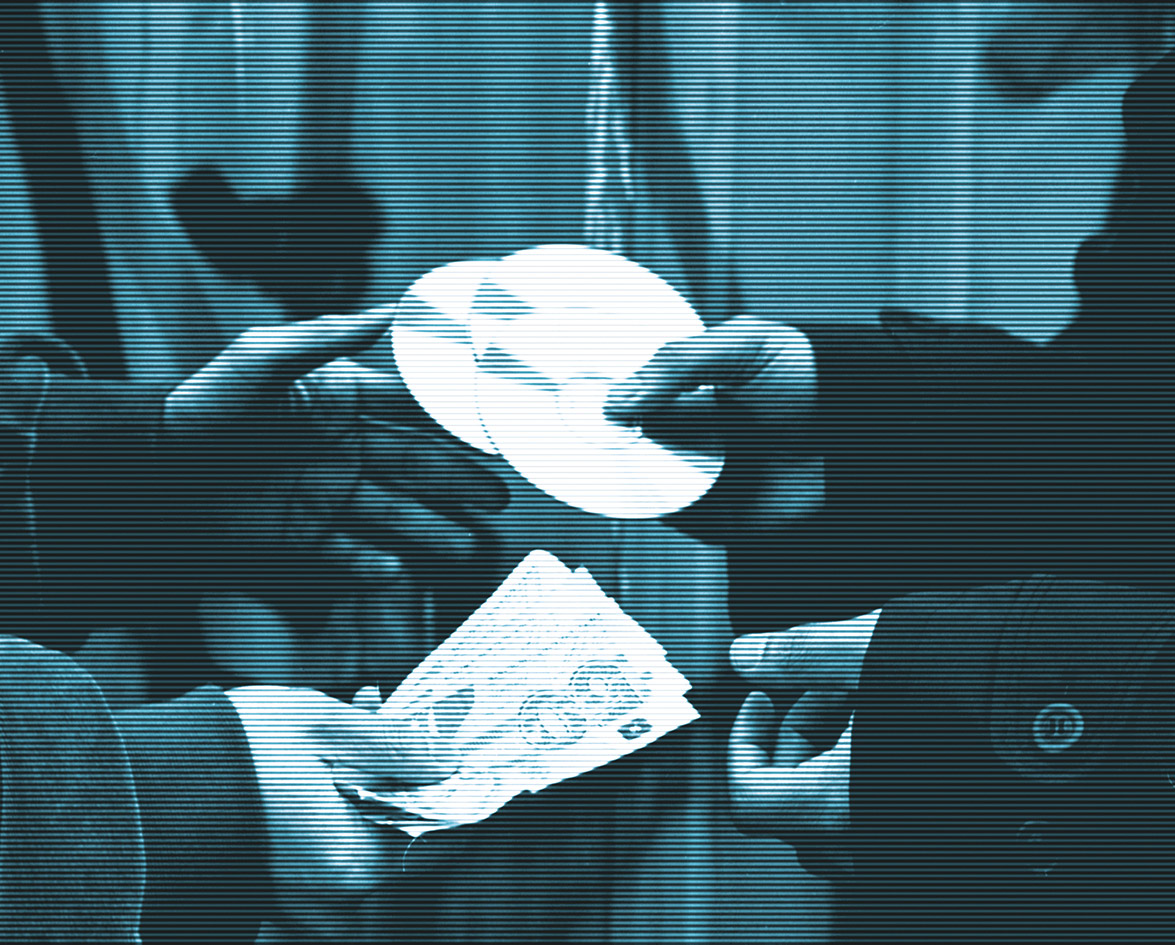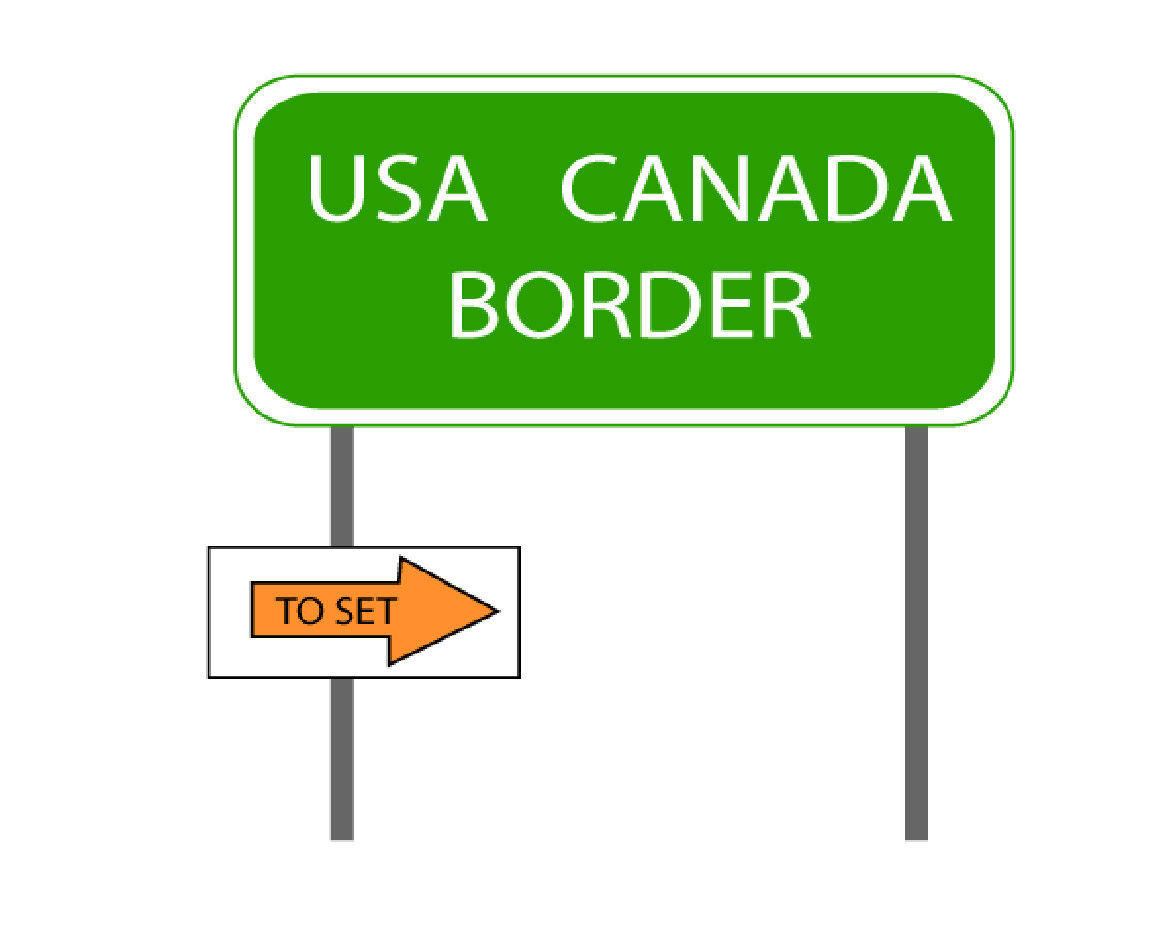A camera moves through a Japanese bathhouse. As it passes each person, they look over their shoulders with suspicion and disdain. The camera rests on two men, both covered with Yakuza-style tattoos. One turns to the camera, runs his fingers through his hair and says, “Thank you.” The scene cuts to a smoke-filled Chinese gambling house. Tired and desperate looking patrons are hunched over their tables. The camera zooms in on a tough looking woman flanked by bodyguards. She turns and says, “Thank you.” On a pier, in the dead of night, men with guns are running toward a boat, loading boxes on it before it leaves. One turns to the camera. “Thank you.” Fade out.
Fade in. A flurry of DVDs and money changes hands. The subtitles read, “Without your help, how could piracy be so profitable? Keep away from pirated goods. Don’t finance crime.”
This anti-piracy commercial, paid for by the Government of Hong Kong, is one of the many measures being taken, in conjunction with the Motion Picture Association of America (MPAA), to curb the growing problem of film piracy in the Asia-Pacific region. The problem, however, is not just specific to Asia. As mass quantities of Asian films are pirated and sold in North America, DVD piracy has become a growing concern in Canada, especially Vancouver.
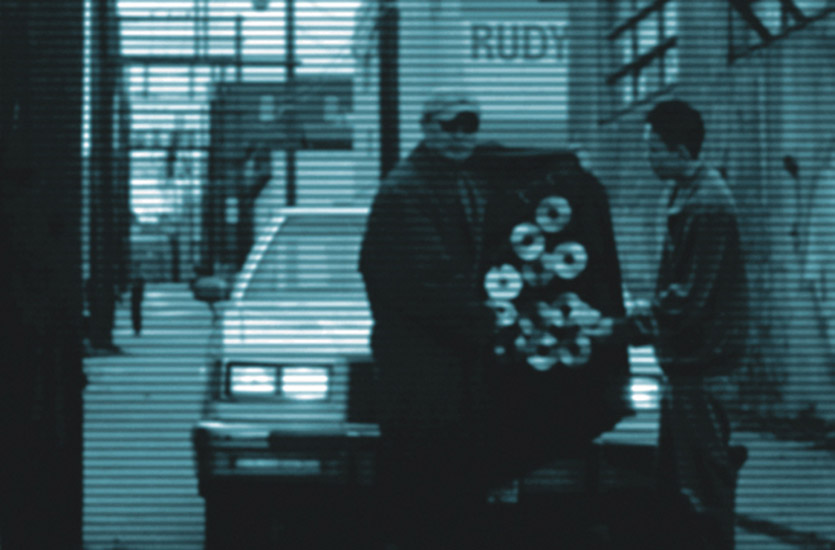
The General Population Is Losing Out
Video piracy affects not only filmmakers but also the general population. According to Jim Sweeney, an anti-piracy investigator for the Toronto branch of the Canadian Motion Picture Distribution Association (CMPDA), the movie industry adds hidden costs into the price of film tickets and DVDs to recoup losses. Since only 20 to 40 percent of motion pictures regain their costs at the box office, most films rely on the revenue generated through DVD and video sales to make their money back.
According to Sweeney, if piracy jeopardizes a studio’s ability to fund future productions, thousands of Canadian jobs may be affected as well. In Canada, the film industry employs over 130,000 people, most of whom live and work in Vancouver, the Hollywood North of the film industry.
Vancouver Police Department Takes Action
In February of 2002, Vancouver police, assisted by the CMPDA, raided stores in Vancouver’s Chinatown. Over $150,000 Cdn of counterfeit DVDs and video games were seized, making it the largest pirated DVD bust in Canadian history. The investigation started as an inquiry into stolen goods sold at Vancouver’s two flea markets. While checking merchant tables, police officers noticed sellers offering thousands of DVD films still playing in movie theatres. The ensuing investigation revealed that several stores in the Chinatown area were offering similar films on DVD.
In September 2002, RCMP officers raided the Richmond Night Market after receiving several complaints of merchants offering counterfeit DVDs. Two booths were shut down, with Richmond RCMP recommending six individuals be charged under the Copyright Act of Canada.
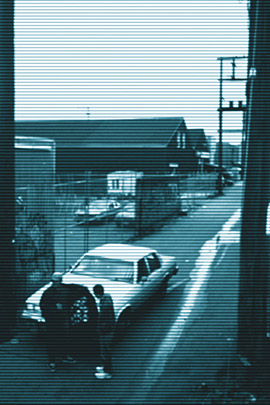
According to the MPAA official website, the US motion picture industry loses more than $3 billion US per year because of the world-wide pirating of American films. Since 2000, they have launched over 60,000 investigations into piracy, resulting in more than 18,000 raids.
Vancouver sees a greater number of pirated films than other Canadian cities because it is a major shipping port and has minimal policing.
The maximum fine for selling pirated media is one million dollars or a maximum prison term of five years. A 1985 amendment to the Copyright Act of Canada demands all copies of pirated films, music, games, or clothing, including any materials used to produce the counterfeit material, be returned to the copyright owner or destroyed.
Vancouver sees a greater number of pirated films than other Canadian cities because it is a major shipping port and has minimal policing. The discs are shipped as blank CDs. If Customs officers are not notified that the items are anything other than claimed, they let them through, with the duty charged on each disc amounting to a few pennies.
What Is The Difference With Bootlegged Items?
A sure sign of a bootleg is the three-sided cardboard sleeve style of packaging. While the sleeve may look attractive, the major seven US film studios do not use this type of packaging. Other things to look for are Asian and English characters appearing together on the sleeve. If the discs were authentic Asian imports, they would typically have only Asian characters. Plot synopses having little to do with the films are another clue.
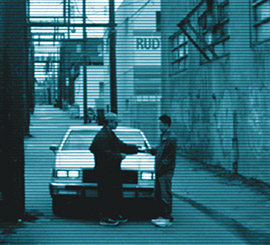
Investigations Continue
The two stores under investigation were shut down for a couple of days while police rifled through the stock, seizing the pirated discs. In all, nearly 200 counts of copyright infringement charges were laid against the stores and their operators. “This is just one more way criminals are making money,” said Fisher. “It’s rare that you will find someone involved in counterfeit media who isn’t active in some other form of criminal activity.”
However, after all the attempts to stifle the sale of bootlegged DVDs, the market still thrives. Police officers admit the situation is out of control. Although it is difficult to account for just how much money the DVD bootlegging industry generates in Vancouver, Fisher estimates at least $10 million worth of illegal materials are sold in Vancouver per year.
In addition to working closely with the CMPDA, Vancouver City police are also collaborating with MPAA affiliates in Asia, who are concerned about mass quantities of Asian films being pirated and sold in North America. Fisher admits that when it comes to Asian films, they don’t know enough to pursue an investigation. Up till now, only the seven major Hollywood studios have filed complaints, and without a complaint, the police do not have the ability to make an inquiry. Now, with the involvement of Asian MPAA affiliates and a greater awareness of copyright violations, police hope to be able to investigate further.
However, manufacturers of the pirated material hardly seem worried. The problem is on the rise in both Toronto and Montreal while some bootleggers have even been smug enough to include the Hong Kong anti-piracy commercial on many of their bootlegged discs.





